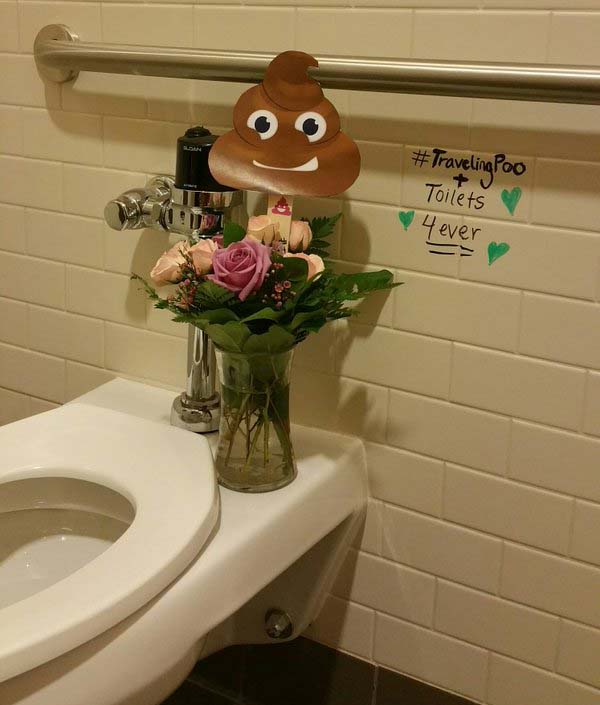What is there to love about poo? Let me count the ways!
|

When you work in global health – and have a toddler – poo is a frequent topic of conversation. Whether it’s breakfast, a walk to the playground, or a nice quiet dinner, I am always up for a good chat about defecation. But not everyone seems to share my affinity for this normal – and oh, so unifying – part of the human experience. So this Valentine’s Day, here are a few reasons why you should love poo, too.
1. It’s relatable. Whether you’re living in Washington, DC, Nairobi, or Delhi, we’ve all been there. Everyone poops. It’s human; it’s normal. Not to mention the fact that we’ve all experienced a stomach bug, a questionable meal, or a child who picked up something nasty. It doesn’t matter where you live, how old you are, or how sophisticated you think you may be, pooping, and even the less amicable diarrheal episodes, bind us all together as humans. We ought to embrace it.
2. We know how to prevent and treat diarrhea. Diarrhea is common and, thankfully, pretty well-understood. We have an arsenal of prevention tools to ensure children are protected from the pathogen responsible for the majority of diarrheal episodes – rotavirus – and we can treat kids when they do get sick. Rotavirus vaccines are one of the most cost-effective tools to fight diarrhea. ORS and zinc ensure children stave off the deadly dehydration caused by diarrhea. Structural investments, including clean water and improved sanitation, as well as behavioral changes, such as handwashing, help prevent the spread of disease.
3. Globally, fewer children are dying of diarrhea each year. In 2000, more than 1.2 million children every year died from diarrhea alone. Fast forward to 2015, with increased coverage of cost-effective interventions including rotavirus vaccines, ORS, and zinc, and the annual number of deaths has decreased by more than half: now about 526,000 children die each year. However, as unifying as poop and diarrhea can be, the reality is that the vast majority of these deaths occur in low- and middle-income countries where medical care isn’t available around the corner.
4. The more we talk about it, the more lives we save! Despite the shared experience, poo remains taboo. No one really wants to talk about it, and I can’t count the number of times I’ve heard people say “gross” when the topic arises. However, the more we talk about it, the closer we get to ensuring children are not dying from diarrhea. We can normalize conversation about diarrhea and poop for decision makers to ensure policies and resources are prioritized for child health; and the more we talk about it, the larger our community becomes, sharing knowledge about prevention and treatment tools that we know save lives.
All jokes aside, as global citizens, our fight against diarrhea isn’t over. The primary reason that I like to talk about diarrhea is to raise awareness. To ensure that diarrhea, which is a common childhood ailment the world around, isn’t shrugged off as something simple and self-correcting. I may enjoy a good poop chat more than most, but I know that there is a robust community of like-minded friends who want to ensure the most vulnerable are protected. If you’re with me, on this Valentine’s Day, spread the word that you love poo, too!














